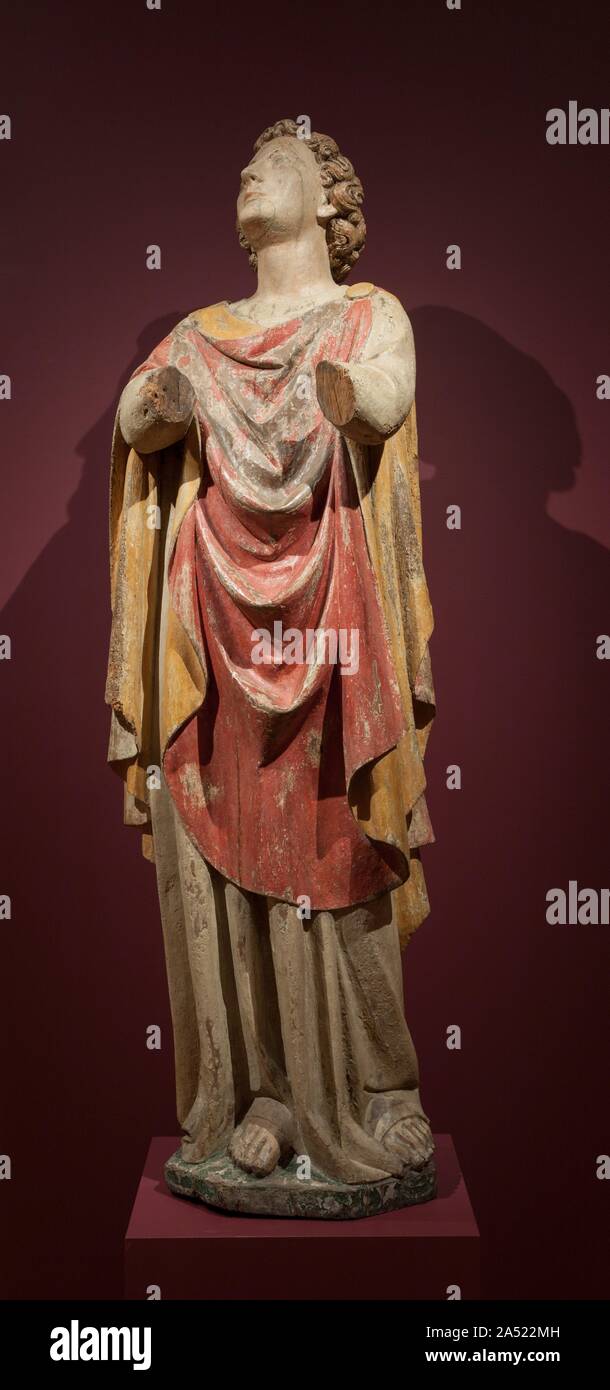Saint John the Evangelist, c. 1400. This sculpture was originally part of a life-sized Crucifixion group and intended to be seen with two more statues, a crucified Christ and a standing Virgin. Multi-figured ensembles in wood belong to a vigorous tradition in central Italy extending from the 1200s to the 1400s. Most commonly, these groups represent the Deposition (Christ being lowered from the cross) or the Lamentation (Mary cradling the dead Christ on her lap). Crucifixion groups consisted of a central sculpture of Christ on the cross flanked on his right by the Virgin Mary and on his left by

Image details
Contributor:
Heritage Image Partnership Ltd / Alamy Stock PhotoImage ID:
2A522MHFile size:
36.6 MB (1 MB Compressed download)Releases:
Model - no | Property - noDo I need a release?Dimensions:
2450 x 5216 px | 20.7 x 44.2 cm | 8.2 x 17.4 inches | 300dpiPhotographer:
Heritage Art/Heritage ImagesMore information:
This image could have imperfections as it’s either historical or reportage.
Saint John the Evangelist, c. 1400. This sculpture was originally part of a life-sized Crucifixion group and intended to be seen with two more statues, a crucified Christ and a standing Virgin. Multi-figured ensembles in wood belong to a vigorous tradition in central Italy extending from the 1200s to the 1400s. Most commonly, these groups represent the Deposition (Christ being lowered from the cross) or the Lamentation (Mary cradling the dead Christ on her lap). Crucifixion groups consisted of a central sculpture of Christ on the cross flanked on his right by the Virgin Mary and on his left by Saint John the Evangelist. Such groups were often displayed during Holy Week in Italy and Spain.